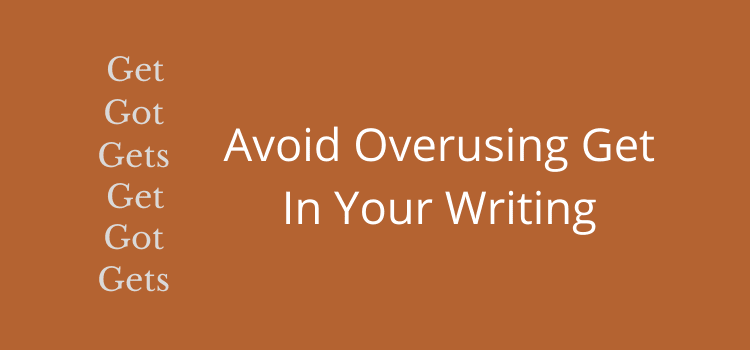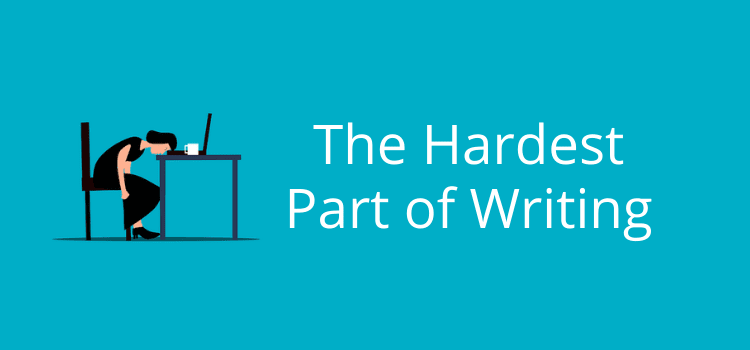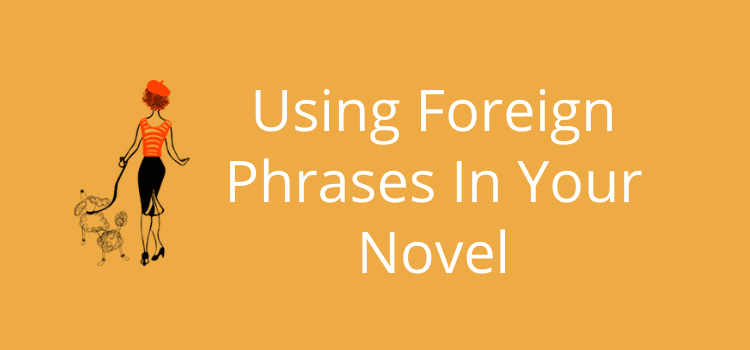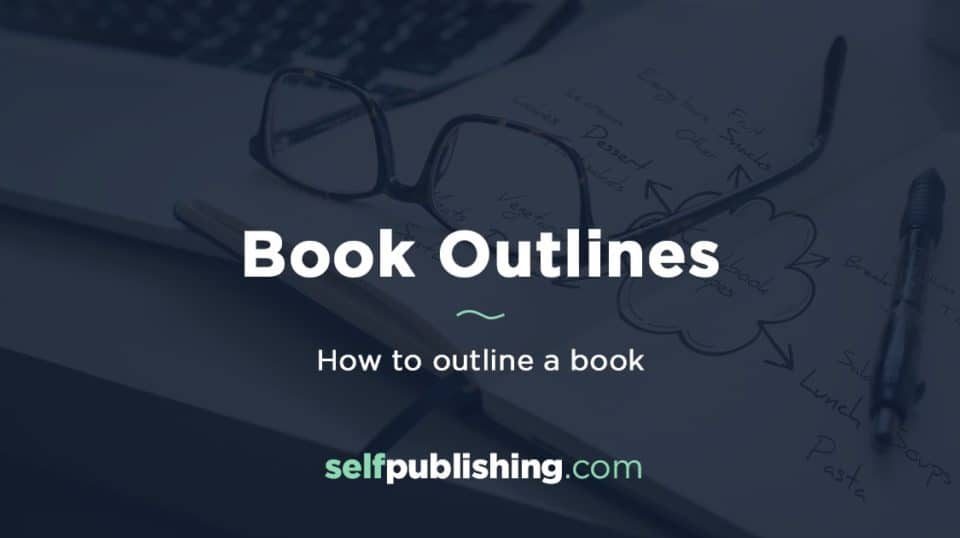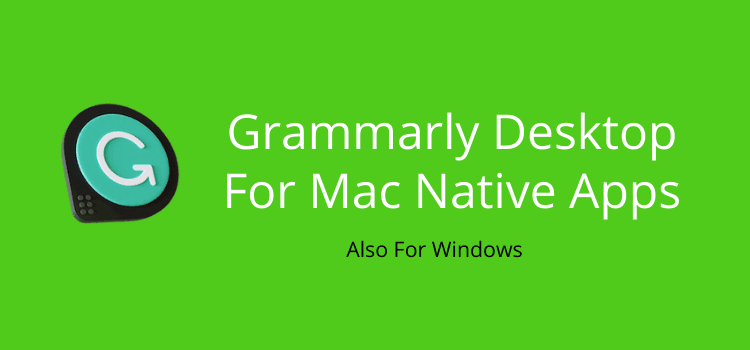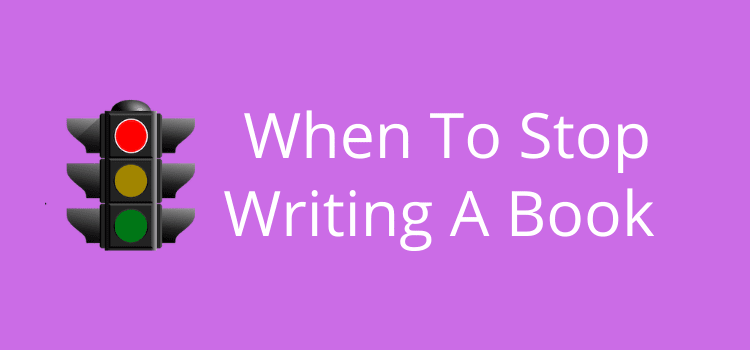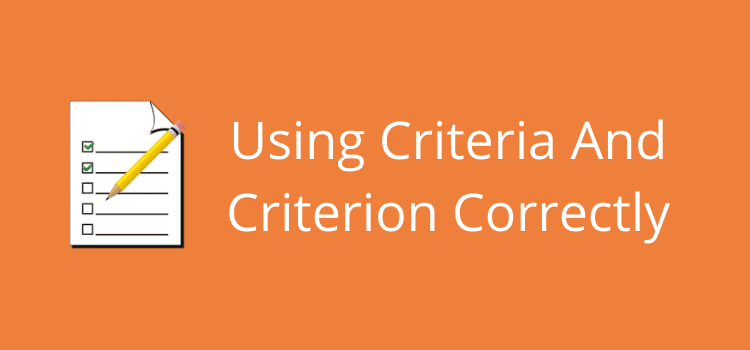Writing / 10 posts found
The Verb To Get Can Sometimes Be Overused In Writing
The verb to get is one of the most common words in English. We use it all the time when we speak, but it’s sometimes better to find alternative verbs in writing. Good writing is always about variety and finding the right words. But because this verb has so many meanings and functions, it’s easy to fall into the trap of overusing it. You can’t write without it. However, if you are aware, you can very often find a better verb. The verb to get has nearly 300 meanings According to the Oxford English Dictionary, get has 289 meanings. But […]
The Hardest Part Of Writing Is Always The Beginning
For most writers, the hardest part of writing is right here. It’s the start, the beginning, the opening. It’s finding an idea, the first words, and the first sentence. All types of writing have a beginning, so it’s the same for every writer. You might be writing a book, an article, a poem, or an essay. Yes, they are very different writing projects. But they all start with a few words that can often be challenging to find. How to beat the hardest part Every writer learns how to overcome the dreaded blank page. It doesn’t matter if you use a […]
Foreign Phrases In Your Novel – Never Use Google Translate
It’s often a temptation to use foreign phrases in a novel to add authenticity. If you set your story in Paris, for example, adding some dialogue in French might seem like a good idea. However, there are some traps that you can fall into that could have a negative effect on your readers. When you are considering using foreign expressions or phrases, you need to take a little extra care. Will readers understand foreign phrases? You might think it’s a great idea to use a sentence in another language. But are you sure that your readers will understand what it […]
De-Escalate Or Deescalate? An Unsightly Word Either Way
In either form, de-escalate or deescalate is an awkward word you would rarely use in writing. Most dictionaries use the hyphenated form because of the problem with two Es. But the interesting aspect is how the word escalate was invented. Also, how politicians then exploited its opposite meaning. Adding the prefix de to negate words is in everyday use now. But it is not always the best or most pleasing choice. The origins of the word escalate The first use of the word escalate dates back to 1900. At the Exposition Universelle in Paris that year, Charles Seeberger, an American […]
Book Outline: How to Outline a Book [Template Included]
Book outlines are crucial when writing a book, so it’s important to learn how to outline a book in the most effective way for your readers. A book outline is the foundation for an organized writing process, and it can be used as a roadmap for your book. No matter how skilled you are as a writer, you’ve no doubt experienced the dreaded blank page syndrome, or writer’s block as it’s commonly referred to. From aspiring authors to professional novelists, writing a book is challenging. You know how daunting of a task it can be to string together a fluid […]
Quick Review Of Grammarly Desktop For Mac Native Apps
I have wanted this feature for years. Now, Grammarly Desktop for Mac integrates with many native Apple apps. The new Grammarly app has been available for a while now, and it works like a charm. The best feature is that I can now use Grammarly to check my emails in Apple Mail. It also integrates with Apple Pages, so it’s another huge plus for writers. Review of Grammarly Desktop for Mac My review has to start by telling you that Grammarly Desktop is also available for Windows. I imagine it works just as well as on a Mac. But I […]
Stop Writing A Book When These Ten Things Happen
It’s a tough decision for any author to stop writing a book. You started your writing project with a lot of enthusiasm. But now it’s becoming a grind. Every writer has a file of unfinished, abandoned, or forgotten manuscripts. So don’t think that you are alone when you start having doubts about your book. As in any walk of life, you don’t always succeed. You win a few, and you lose a few. Ten reasons to stop writing a book It’s the last thing you want to do. But knowing when to quit writing a book is a decision all […]
How to Prep for NaNoWriMo: 7 Ways to Make Sure You Crush Your Goals
Every November, writers from around the world get together and work on cranking out an entire novel in a month. Originally founded in 1999 by Chris Baty, the goal of NaNoWriMo (National Novel Writing Month) is to write 50,000 words over the course of the month since that is roughly the length of an average novel. Over 400,000 (and growing) people buckle down every year to attempt the challenge. While it’s hard to write a fully polished novel in that amount of time, most of the focus is on simply sitting down and putting words to paper as fast as […]
The 7 Best Writing Apps
Ages ago, writers had to write by candlelight with quills and ink. Now, it’s as easy as whipping out your phone while waiting in line at the grocery store and jotting down a few sentences. The question is, which app should you use to organize your writing? With so many options out there, you want to pick the right one so you don’t spend more time moving your writing around than you do actually writing. Having a good writing app can save you from having to scroll through all of your notebooks to find that one note you need. Instead, […]
How To Use Criteria And Criterion Correctly In Your Writing
Criteria and criterion are two words that show the evolution of modern English. Strictly defined, the word criterion is a singular noun, and criteria is the plural form. However, it is rare to see this applied in writing today. Unless you are a stickler for accuracy in your writing, the plural form is now generally used as a singular noun. How to use criteria and criterion correctly You don’t often come across the word criterion. But if you want to improve your writing and be grammatically accurate, it’s a word worth keeping in mind. Here’s the strict definition. A criterion […]

